Speaking Out: On Voice Direction
As a fan of narrative-led games, there's one subject that I've never taken for granted: voice direction. Which led me to wonder why so many games companies apparently do. Why do so many games have perfectly decent actors struggling with scripts, lines delivered with completely incorrect intonations, and conversations between characters which couldn't sound more disjointed? Something as simple as this can change the tone of a game, reducing a big-budget epic to sounding like a junior school play.
A few months back for PC Gamer I investigated voice direction by speaking to those who get it right. I spoke to LucasArts' David Collins, responsible for directing Monkey Island, FunCom's Ragnar Tørnquist about creating April Ryan and casting The Secret World, and 2K voice director Jack Scalici who is responsible for the enormous voice cast of Mafia II. I also spoke to two of the most respected voice actors. Dominic Armato is the voice of Guybrush Threepwood, and Sarah Hamilton plays April Ryan in the Longest Journey games. Below they discuss the craft, and express their passions and frustrations about voice acting and directing. This article originally appeared in PC Gamer issue 206.
Voice direction, one of the most essential elements when creating convincing gaming fiction, is yet by far the most neglected aspect of game development. There are still significant problems with story writing, but this is an area in which many developers and publishers are taking impressive steps forward. Games are increasingly taking their narrative seriously. However, in many cases this has not been accompanied by the same focus on directing the actors delivering the lines. Voice directing, very often, is woefully lacking. Fortunately there are some who fight back.
While graphics, physics, and sound effects have improved constantly over the years, voice direction is all too often ignored. It is, like so many aspects of generating effective fiction, a thankless task. When done correctly it goes unnoticed, the player enjoying the dialogue without noticing. It’s when it’s gotten wrong it so glaringly stands out.
It would be very easy, and possibly a lot of fun, to write about how games get it so wrong, but it’s my contention that this is something developers can quite easily address. Indeed a few do, to enormous success. I spoke to three voice directors who have had been exceptionally proficient at providing superb voice acting for games, and two well known voice actors, to ask them how it’s done, and how it’s done right. These are people who go the extra mile – a mile all games should be walking.
Just one word
“Whatever it costs us it costs us,” says 2K’s exhausted director of audio, Jack Scalici, when I talk to him at 3am Pacific Time. Working on the voice direction for Mafia II in Hollywood, he stays at the recording studio until the early hours of the morning to make sure he’s around when the Czech developers are in their offices. This is dedication. He explains the importance of getting the voice direction perfect, no matter the price. “If one of those words is off it takes me out of the game, and kills my suspension of disbelief.”
“I think the moment I hear something that’s badly overacted or completely weird screwed up accents, it pulls me out of the context of the game,” echoes an equally passionate Ragnar Tørnquist, currently directing the voice actors for forthcoming MMO, The Secret World. “It’s like a bad actor in a TV show can ruin a scene, or a bad voice in an animated movie can really destroy a character, I think the same happens in a game. Even in an FPS, bad acting is going to remove the immersion for me. I’d rather people just shut up.”
It’s a thought repeated by LucasArts voice director David Collins. “Sometimes audio can get back-burnered, or lost in the shuffle.” But when it’s right, he says, it makes all the difference. “It makes everything come to life. It makes artificial intelligence seem smarter. It makes gameplay seem tighter.”
Scalici, Tørnquist and Collins have a track record that demonstrates why they’re worth listening to. Tørnquist directed the actors for both The Longest Journey and Dreamfall: two stunningly well acted and performed adventure games still noteworthy for the standards they set. Scalici directed the remarkable voice work in BioShock and indeed all 2K’s non-sports games. The footage revealed so far of Mafia II shows this quality being taken to the next level. Collins was responsible for the pitch-perfect voices in the recent remake of The Secret Of Monkey Island (SOMI). It is no coincidence that each brings up the same specific topics throughout. And each explains that the most crucial aspect of successful gaming voice direction is to ensure the actors understand the context of their scenes.
Put in context
It may seem obvious, but as Tørnquist explains, it’s something voice actors aren’t used to. “It’s surprising to me. I talk to a lot of actors who do a lot of games and oftentimes they only know whatever little piece they’re given in a script and nothing else. Actors really appreciate getting the grand picture, to know how their character fits into a story, and what lies behind what their script says. The subtext.”
So says Sarah Hamilton, the memorable voice of April Ryan in Tørnquist’s Longest Journey games, remembering the experience of working with the director. “What sets Ragnar apart is he is giving you your lines with back story. He tells you the story, and I’m able to really get into it.”
Scalici takes the same approach. “One thing I found really helpful, every time I get a new build of the game, I’ll bring it in and show the actors how the game’s progressing. I show them how their voice sounds with the character.”
Collins explains that while he ideally will show actors the game running, this isn’t always possible. “It depends on where we are in development of the game. In the early stages when there isn’t a lot of game to show the actors, I bring in concept art and I talk to them about the game, or mention a similar title or situation. I talk them through the story.”
These sound like simple things, but they’re something voice actors aren’t used to. Traditionally they come into the studio, deliver their lines, and move on. Dominic Armato, most famous for providing the voice of Guybrush Threepwood in the Monkey Island games, couldn’t agree more.
“For me, it’s all about context,” he tells me late at night from his New York apartment. “Even down to the dumbest little details – who is this person I’m speaking with, how far away am I, what’s the lead-in like, what other people are standing around? All those details of the scene that you have to imagine. The voice directors who are really good are the ones who can really vividly paint the context for you.”
Casting wide
But how do the actors get to the project in the first place? The casting process is of course crucial. All three directors stress the importance of never simply making do. “Good actors cost the same as bad actors,” says Tørnquist. “We’re hiring so many really good, experienced, well known actors for TSW, and they cost the same as bad actors. Why not get somebody who can obviously do a better job?”
“Not all games are created equal,” comments Collins. While spending enough is important, different games have different budgets. “So with SOMI I had to be very budget conscious, but spend the money wisely by going for really good talent. It definitely helps when you go after people with experience, rather than bringing in your best friend. A lot of games companies don’t do that.”
When looking for voice talent a developer will often approach agencies, sending them what’s called a “casting package”. The agency then calls in actors they think are suitable for the part. Armato recalls when he was living and working in LA, before his first gig as Threepwood.
“I’d drive down to the agency’s office maybe three days a week. They’d say they had some copy for me, and usually you wouldn’t know what it is before you get there. I’d go into the studio with my agent, record three or four auditions, and they’d send them off, and I’d be on my way. Once in a while I’d land one of them.”
These audition tapes are received by the director who will either call people in based on these, or request a further live read audition. Armato, who had told a friend shortly before moving to LA that his dream gig would be to play Guybrush Threepwood for a Monkey Island game, explained that he “flipped out” when he saw the script for Curse Of Monkey Island, and even more when he was called back.
“The voice director on that project, Darragh O'Farrell, had a live call-back, came down to LA, rented a studio for the day, and saw people for the roles. I spent the entire audition trying to figure out how I could slip in the fact that I was a really, really huge fan of the game, and understood everything that was going on. “I know the humour, I know the world!” It turned out that this may very well be what put me over the top. Many many years of videogame playing finally justified!”
Sarah Hamilton’s experience was similar. Having received the call from her agent that there was an audition for a game, she attended, and was mistakenly given the impression that eighteen year old April Ryan was in fact fourteen or fifteen. “So I made her voice a little younger, and I thought I did really poorly. It was one of those auditions where you walk out and think, ‘Okay, on to the next one!’” Of course, a month or so later she got the call to say she had the part.
Scalici has found this process even more complex when picking actors for Mafia II.
The game features around three hundred characters, and in order to maintain the authenticity of the script – something that Scalici had spent a year reworking from author Daniel Vavre’s Czech-translated original – the dialect had to be understood by the cast. “They had to grow up in Brooklyn, the Bronx, Queens, Little Italy, Manhattan,” he tells me. “The amount of dialogue they have to do, I can’t be stopping them to direct the dialect.” In fact, one of the lead actors, Robert Costanzo who plays Joe, grew up in Brooklyn around the mob. “That’s probably two thirds or three quarters of getting a good performance,” adds Scalici, “getting the casting right.”
Direct to the source
So with a cast in place, who should do the directing? It’s very common during development to hire an agency who take care of everything for the developers. But Tørnquist explains this is likely where most games get it so wrong.
“I think the most important thing is a lack of connect between the designers, the writers, the voice directors and the actors,” says the former short film director. “There’s no through line. There should be more connect between the director and the dev team. He needs to talk to the designers, see the game running, and have an understanding of the game, and have an understanding of games. Someone who gets a kick out of working with games.” Indeed, Tørnquist suggests that too often the directors hired are dismissive of games as a format, they don’t take them seriously, and don’t communicate well with the team making the game. “I think that’s why I do it myself. I really want that connection, so the intent from the beginning is kept to the very end.”
Scalici’s involvement in Mafia II was for very specific reasons, despite not working immediately for 2K Czech but rather publishers 2K. Born in New York, familiar with what he calls “Brooklynese”, he’s uniquely able to understand the dialogue and ensure it’s perfect.
Acting company
Perhaps the biggest difference a team can make when recording dialogue is also the most difficult: getting actors together in the studio. While it may seem a perfectly natural way to record conversations, it’s almost unheard of in game development. However, when it’s done the results are profound, as anyone who’s played The Longest Journey will attest, and indeed anyone who’s heard the dialogue in Mafia II’s released cutscenes.
“That’s a big disadvantage for voice actors, that they don’t get to play against anybody else,” says Tørnquist, but he stresses there are compromises. “What we do often, if we’ve already recorded the other half of a conversation we’ll play that first to give the actor the sense of what the other character sounds like, what their rhythm is, where their beats are.” However, he wanted to do more than this and The Longest Journey gave him the opportunity.
“When I got the call from my agent to say they were interested in me,” says the game’s star, Sarah Hamilton, “I was told to put two weeks aside. Two weeks?! That’s crazy!” Her expectations were that she’d still be able to leave for other parts or auditions in this time, but it wasn’t the case.
“We had Sarah Hamilton in the studio for two weeks solid, eight hours a day,” Tørnquist explains. “So she played against the other actors all the time, and we recorded her dialogue as she talked to them. Which meant that some of the dialogue works really, really well. They were able to feed off each other, rewrite lines together.”
Hamilton recalled it was an extraordinary experience. “I don’t think I’ve talked that much in anything for anything. I’ve had commercial accounts – I’ve been the voice for Chapstick in America – and I’ve never talked that much in my life. I finally lost my voice at the end of the very last day.”
The actor quotes a tutor of hers who said, “If you’re good, you can act with a telephone pole.” But, she explains, “It’s so much better when you’ve got someone there to say your lines with. If you say something as simple as, “I’ve got it,” the way you say it can be completely different depending on how the other person speaks.
Dominic Armato has some experience of similar recording sessions. “For Escape From Monkey Island I got to do scenes with some of the other actors. It’s a luxury – the budget was there. And you obviously get a better read when you’ve got someone right there you can work off of, and play off of each other.”
Scalici has taken this idea to the next level. The recording process for Mafia II is unlike any other. “One thing I was adamant we’d do in this game is get the actors together,” the director tells me. “So I’ve rented an ADR stage – the one they used for Transformers 2 – and we can fit eight characters comfortably in the room. And the result is a natural conversation. A lot of spontaneous stuff we end up keeping in the game. It’s much more natural.”
Off the page
Another striking difference in Tørnquist’s approach to directing his actors is allowing for improvisation. This is something of a luxury, and requires not only actors confident enough in their part to cut loose, but also a game in which deviation from the script is possible. Both Mafia II and The Secret World are using motion captured (mo-capped) actors who physically interpret the recorded dialogue, which means scripts must be locked down early in development. With these limitation, actors need to specifically time their lines, unless recorded extremely early on. While Tørnquist has attempted to do this for some parts in TSW, it’s something he fully embraced in The Longest Journey and Dreamfall. The best example of this was TLJ’s Burns Flipper, voiced by stand-up comedian Andrew Donnelly.
“His stuff was for the most past improvised, based loosely on the original dialogue,” says Tørnquist. “That’s something he enjoyed doing, we had fun doing that.” The result is a highlight of the game, natural and hilarious. And remarkably rude.
“I love that!” says Hamilton when I ask about the experience of working with a director who encourages such diversions. “I love going off script. It’s the best part.”
David Collins also enjoys opportunities to let actors improvise. “I think it’s wonderful,” he tells me. “In The Force Unleashed there was a lot of improvisation. I had the actors improvise their responses to being picked up by the Force. The results were very funny. It’s a great technique.”
“If dialogue is outsourced there’s no way you can do that,” comments Tørnquist. “The actors won’t know what’s possible, if there’s any freedom whatsoever. In my case I know exactly how much leeway we have, so I can tell the actor, here, go crazy here.”
Imaginary friends
As everyone I spoke to explained, it’s often simply impossible to have actors appearing together. David Collins mentions the scale of the task for recording The Old Republic’s vast script. “There’s a number of voice directors working on it, and a number of script writers, and there are actors in studios literally all over the world all the time. Trying to put together all that dialogue so it works together is very challenging.”
However, there are many tricks that can be used to get good results. Collins talks about one device used when recording SEMI. “With this project I wasn’t able to have more than one actor at a time. Everyone was recorded separately, so I did a few things. I read across from people at certain points, and I could play in how a previously recorded actor had said their line. The inflection in that can completely change how you respond.”
Tørnquist and Scalici also talk about using previously recorded dialogue, and all three stress the importance of making sure the actor knows what’s happening in the scene. Armato explains why the responsibility for success here really lies with the director.
“Usually there’s not a whole lot that I can do. It’s up to whoever’s preparing the script. Whoever’s preparing the script needs to group the lines as logically as possible so you’ve got lines that are related to each other as close to each other as possible. And secondly, the director who’s working on it has to be able to provide the context, being familiar enough with the script to know what’s happening.” Of course, there will be times when confusion arises. Armato continues. “You have to think of four or five things you can imagine leading into the line and read it four or five different ways, and hope that one of those hits. And if not, maybe we’ll have to get it in a pick-up later.”
Pick-ups
Perhaps the most persistent theme in all the conversations I had was the topic of pick-ups. All three directors recognised the practise of calling actors back in later in development as essential for good results. Once the game is almost finished, and the dialogue put in place, the glaring mistakes, the misplaced inflections, become far more obvious.
Armato found this essential when recording all three voiced Monkey Island games. “Usually after the bulk of recording – for the Monkey games they were 22, 24 sessions – when it’s getting close to release they’ll bring you back in for pick-ups,” he says. “They’ll list all the lines they weren’t happy with for whatever reason, and re-record it.”
Tørnquist heavily stresses this. “It’s really important to have the luxury to say, ‘Okay, if we really screw this up we can go back at a later stage and re-do this line or conversation.’ To me it’s very liberating.”
“We’ve had some of these guys 25 or 30 times in the studio,” says Scalici, matter-of-factly, about the process of recording Mafia II. “For an open-world game, where you have thousands of lines per character, it’s not unusual to have them come back 25 times.”
Cough up
Finally, everyone stresses that you should not be afraid to spend money. “We’re using union talent in this game,” says Scalici. “It is not cheap at all. Even at scale wages, the union minimum, it costs us a lot of money.” But Tørnquist argues that while it can be pricy, it’s nothing compared to the larger budget for game development.
“This my mission to tell people: writing, voice direction, voice acting, voice recording, those are the cheapest things we do. We spend 30, 40 million dollars making these games, and you’re just wasting so much potential. It’s amazing, it amazes me.” He gives a specific example. “There have been numerous occasions when we’ve re-recorded an entire actor. We’ve said, ‘That actor didn’t work, let’s re-cast it.’ Yes it costs maybe a few thousand dollars, but that’s nothing compared to the impact that it has on the game that costs millions and millions of dollars.”
Armato points out that spending that extra money, going with union actors through agencies, immediately strips out the chaff. “If I’ve been called in as a union actor via an audition process, then already there’s a certain amount of care and concern. That is not present with a lot of developers, who do not put that kind of care and energy into the voices.”
That’s a wrap
Good voice directing is about changing priorities. The solutions to fixing the paucity of high quality gaming voices are not necessarily cheap nor simple, but in the greater scheme of game development are a thin slice of a huge pie. If you can get actors in the studio at the same time, do it. If you cannot, go to great lengths to make the context incredibly clear. Show actors the game, show them the concept art, play them the dialogue to which they’re responding, or simply read them the lines to which they’re responding. And absolutely always make sure there’s time and money for pick-ups.
As everyone I spoke to emphasised again and again, the significance of good voice directing is enormous. Certainly games will sell despite poor acting, but for the directors I spoke to, and certainly for very many gamers, one poor line, or one terrible actor, can break a game’s spell – something developers should always be striving against. Of all the aspects of game development that can be improved, it’s easily one of the simplest to change. The last, passionate words go to FunCom’s Ragnar Tørnquist.
“There’s so many good writers, actors and competent directors that there’s no reason why we should get this wrong. It’s just a question of spending the time and having the focus on it. And it pisses me off that people don’t do it. It makes me really angry.”
The Best And Worst Of Voice Acting
Best
Grand Theft Auto IV
Widely applauded for its acting, GTA IV’s actors had realistic accents, interacted in a real-world manner, and most remarkably, were sympathetic despite being thugs and killers. It was a fine achievement by a remarkable cast, taking the series to new heights, confirming Rockstar as great storytellers.
Day Of The Tentacle
LucasArts had only just started adding voices to their games, and they absolutely nailed it with DOTT. While deliberately cartoony, the characters delivered pathos alongside slapstick gags. It’s hard to imagine the game without Bernard, Laverne and Hoagie’s superb, dry performances.
Mass Effect
BioWare’s non-Star Wars sci-fi adventure has a wonderful cast, delivering moments of emotional resonance especially well, even offering a relatively convincing sex scene. Many recommend playing a female Shepard as Jennifer Hale’s performance significantly outdoes Mark Meer’s.
Half-Life 2
While some characters may veer toward cartoony, Merle Dandridge’s Alyx is one of the finest performances in any game. Your constant companion, and your means of communication, she’s sympathetic, enthusiastic, and genuinely funny. Especially since she never gets a reply.
Worst
Legacy: Dark Shadows
Russian developer Razbor Studios delivered what must be the worst acting in any game ever. It’s astonishing. The actors barely sound human, let alone capable of speech. Words cannot do it justice, so click here.
Oblivion
It might have been a remarkable game, but the acting was often dismal beyond belief. Possibly never worse than when two people spoke to each other with the same clodding voice, despite being different sexes. Come on Bethesda, patch up this hole in your otherwise splendid development team.
Limbo Of The Lost
An extraordinary game for many reasons, LOTL not only stole art and cutscenes from multiple games, but had some of the most stunningly bad performances you’ll ever hear. None were professional, clearly, but if you’re able to find a copy it’s well worth the experience.
Men Of War
This year’s splendid RTS surprise hit from Russian developers Best Way and Digitalmindsoft may have been one of the most superb WW2 battle-em-ups of all time, but its voice acting is excruciating. It's Ukrainians playing Russians speaking English.
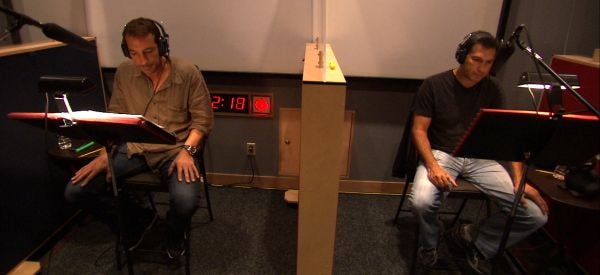

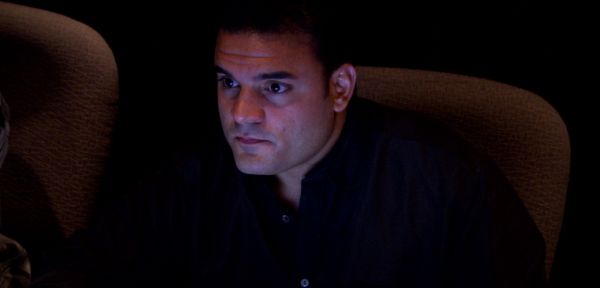
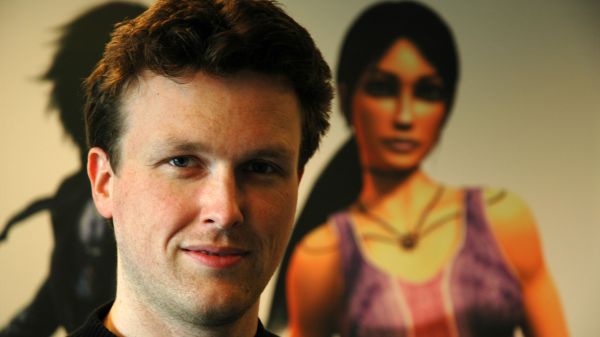
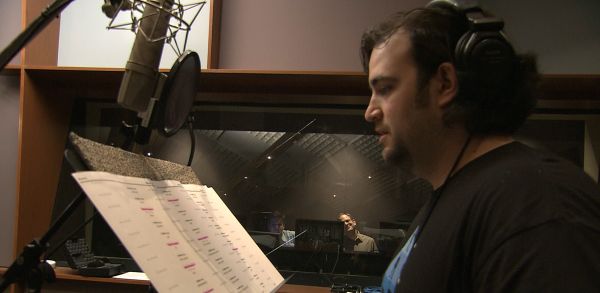


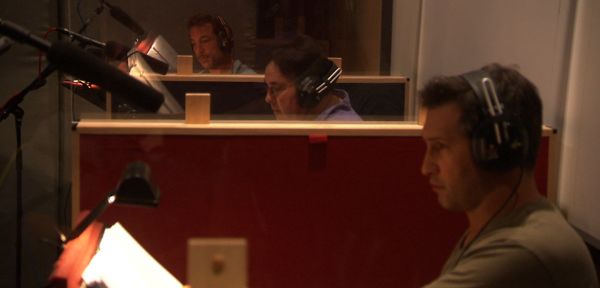
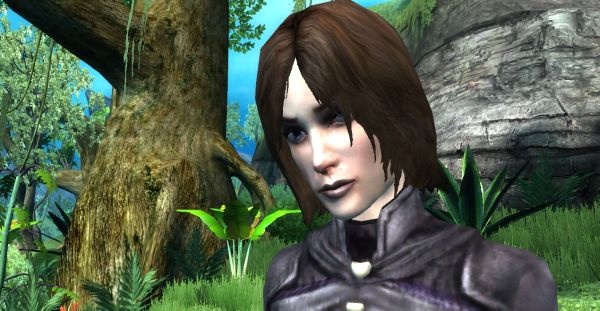

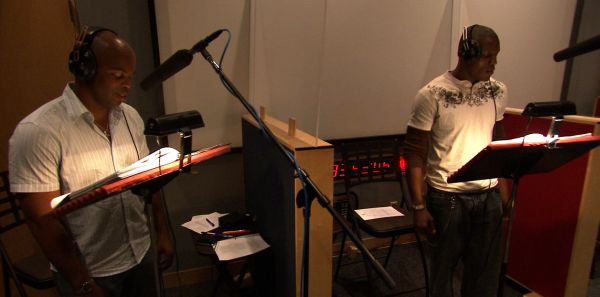
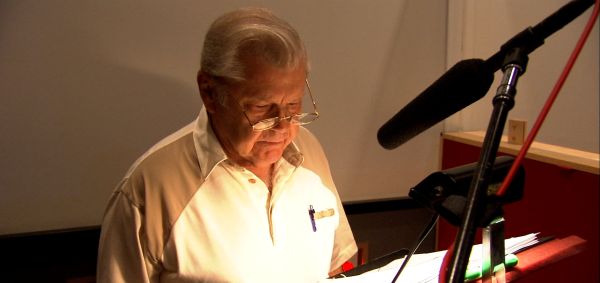
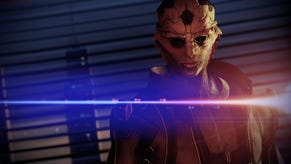

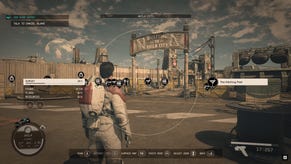
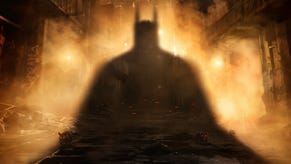
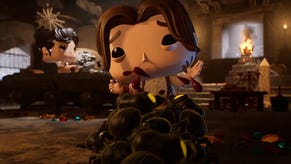
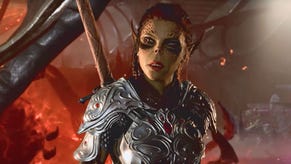
.jpg?width=291&height=164&fit=crop&quality=80&format=jpg&auto=webp)
